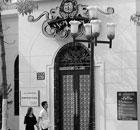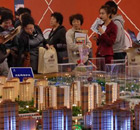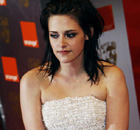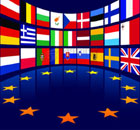Highlights
Gold standard for China
(China Daily)
Updated: 2010-03-01 09:43
 |
Large Medium Small |
|
 Wang Beixing of China, who won a bronze medal in the women's 500m speed skating at the 2010 Winter Olympics in Vancouver, Canada, gets her breath back during training on Feb 11. [Agencies]
|

Local sportswear brands like Li Ning and Anta are growing, with export volume hitting a peak of about 8 billion yuan ($1.17 billion) in 2008 and dropping only slightly during last year, she said. "But China is doing almost nothing in the sports service sector and we still have a long way to go. As a commodity, our basketball and soccer leagues are of low quality, so the majority of people in China turn to the NBA for basketball and the European leagues for soccer," he said.
The recent match-fixing and illegal betting scandal that has rocked the nation's soccer league - the China Football Association said this week it has "solid evidence" to expel one team the competition, while two others have been demoted to lower divisions as punishment - has not only shaken fans' belief in the domestic game but also harmed the international brand of Chinese sport, said analysts.
"The soccer scandal adds insult to injury. The government have not been giving it proper supervision and I'm afraid foreigners will take it as an example of a bad 'made-in-China' product. The professional game here as a whole has lost creditability," said Yang.
China's largest sporting brand, in reputation and height, is arguably one man: Yao Ming. The Huston Rockets all-star center, who has become one of the NBA's most popular players since his arrival in 2002, topped the Forbes Rich List of Chinese celebrities for the fifth year in a row in 2009 with earnings of almost 360 million yuan.
Although struggling with a foot injury since early last year, his stock has only risen higher in the eyes of the Chinese people since he reinvested some of his vast personal wealth into buying his former club, Shanghai Sharks, last November.
But it is perhaps the less high-profile deal done between QSL Sports Limited and the Chinese Basketball Association (CBA) that is expected to have more impact on the domestic game.
The historic dollar agreement sealed last week, which will see QSL manage the National Basketball League, which is independent of the elite CBA, is the first time a private enterprise has been allowed to completely take over a professional league in China. Previously, sports associations under the State General Administration of Sport governed all leagues.
"The National Basketball League will be dedicated to finding homegrown stars through college recruitment projects, while it will also have stricter policies on the use of foreign players," said Kenneth Huang, co-founder of QSL, who in November also bought Jilin North East Tiger, a team in the CBA.







